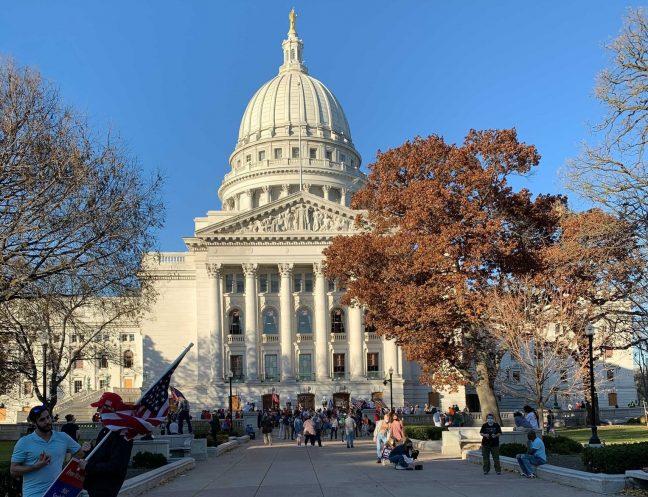After years of empty promises and forced empathy, Wisconsin family farmers may finally get the resources and support they desperately need. The new budget proposed by Gov. Tony Evers dedicates $43 million to rural development in the state. This action marks a light at the end of a dark tunnel for many farmers who have faced growing hardships over the past two years.
In 2017, former President Donald Trump followed through on campaign promises and set trade restrictions on China, hoping to improve U.S. agricultural development. On the campaign trail, he promised to protect American farmers and keep family farms afloat.
The promises Trump made clearly worked, winning the state in the 2016 presidential election over the Democratic challenger, Hillary Clinton, specifically with help from voters in rural farming communities.
The trade war placed $360 billion dollars worth of tariffs on Chinese goods to increase costs for imported goods. The tariffs were placed on everything from musical instruments to packaged meat. By the second year of these restrictions, Trump went on the record to say that the U.S. was “in a strong position” and that the trade deal was “working out really well.”
Unfortunately for rural farmers, this just was not the case. China and other U.S. trade allies placed retaliatory tariffs on American goods, causing Wisconsin to take 15% of the economic hit due to China’s exit in the previously bilateral agricultural trading.
These tariffs put a massive burden on already struggling Wisconsin farmers. Within the past 15 years, half of all Wisconsin farms have gone bankrupt. Compiled with the effects of the Trump trade war, 2019 saw another 57 Wisconsin farms go under, the most in the nation — not great for America’s supposed Dairyland.
With the tariffs only creating further destruction in rural Wisconsin, local farmers made it clear that the former president had failed them.
Wisconsin Farmers Union President Darin Von Ruden said Trump “broke his promise to us to expand markets and help our balance sheets, putting countless farmers in a perilous situation.”
A poll by the State Department of Agriculture, Trade and Consumer Protection showed that the smallest dairy farms in the state have the least optimism of remaining in business, with 23% of farms with herds under 50 cows expecting to close in the next five years. Wisconsin farmers have been promised the world, but instead lost everything for part of Trump’s political game.
With the growing economic hardship and mounting social pressures, farmers are facing mental health struggles. In the same DATCP survey, it found that one in 10 farmers felt the need to seek mental health services, but only six percent actually sought treatment.
This comes as no surprise when almost the entire state of Wisconsin is currently lacking in available mental health services. But this shortage, along with many other rural disparities, may have a solution in sight with Evers’ new budget.
The governor announced his new two-year state budget on Feb. 5 and it includes over $40 million dedicated to rural communities in Wisconsin. Specific plans include boosting Wisconsin dairy exports, issuing grants for Dairy equipment, creating programs to supply fresh food to local schools, providing continued funding to rural mental health services and more.
Wisconsin was built upon a rich history of farming, and after years of tough economic turmoil, it is time for the state to do whatever it can to protect our local family farms. With Trump and his Republican colleagues failing to meet promises and expectations set by farmers in Wisconsin, Evers has made the first step in a long road to recovery.
With the budget now off to the Republican-controlled state legislature, leaders like Assembly Speaker Robin Vos need to put the state’s money where their mouth is and finally do their part to protect family farming.
Until family farms are actually supported by the government, it is on us as Wisconsinites, as neighbors, as families and as friends to support the local family farms nearest to us. Farmaid.org has links to multiple resources to find family-grown food near you.
For farmers or anyone else struggling and looking for mental health resources, the State Department of Health Services has many mental health resources available on their website.


